Resources
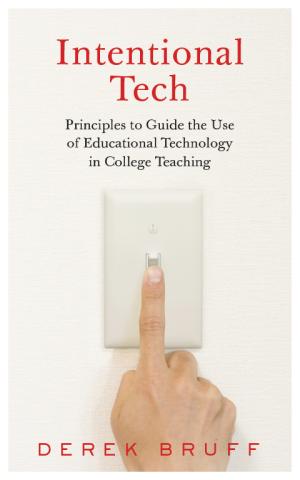
Chalkboards and projectors are familiar tools for most college faculty, but when new technologies become available, instructors aren’t always sure how to integrate them into their teaching in meaningful ways. For faculty interested in supporting student learning, determining what’s possible and what’s useful can be challenging in the changing landscape of technology. Arguing that teaching and learning goals should drive instructors’ technology use, not the other way around, Intentional Tech explores seven research-based principles for matching technology to pedagogy. Through stories of instructors who creatively and effectively use educational technology, author Derek Bruff approaches technology not by asking “How to?” but by posing a more fundamental question: “Why?” (From the Publisher)
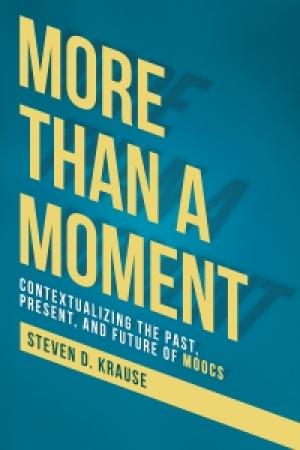
As recently as 2012, massive open online courses (MOOCs) looked poised to revolutionize higher education, but in just a few years their flaws and problems have made them into a less relevant model. In More than a Moment, Steven D. Krause explores MOOCs and their continuing impact on distance learning in higher education, putting them in the context of technical innovations that have come before and those that will be part of the educational future. Krause writes about his own experiences as a participant in several MOOCs and the experiences of faculty who developed and taught MOOCs. Contrary to many early claims from educational entrepreneurs, they were never entirely “new,” and MOOCs and their aftermath are still at the heart of the tensions between nonprofit universities and for-profit entities, particularly online program management firms, in delivering distance education. While MOOCs are no longer a threat to education in the United States, they are part of the ongoing corporatization of education and remain part of conversations about experienced-based credit, corporate training, and open education. Presenting historical, student, teacher, and administrative perspectives, More than a Moment is a well-rounded treatment that will be of interest to academics and entrepreneurs interested in distance education, online pedagogy, online program management, and public-private partnerships in higher education. (From the Publisher)
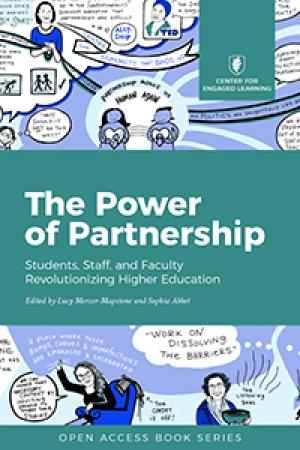
The Power of Partnership celebrates the nuance and depth of student-faculty partnerships in higher education and illustrates the many ways that partnership—the equitable collaboration among students, staff, and faculty in support of teaching and learning—has the potential to transform lives and institutions. The book aims to break the mold of traditional and power-laden academic writing by showcasing creative genres such as reflection, poetry, dialogue, illustration, and essay. The collection has invited chapters from renowned scholars in the field alongside new student and staff voices, and it reflects and embodies a wide range of student-staff partnership perspectives from different roles, identities, cultures, countries, and institutions. (From the Publisher)
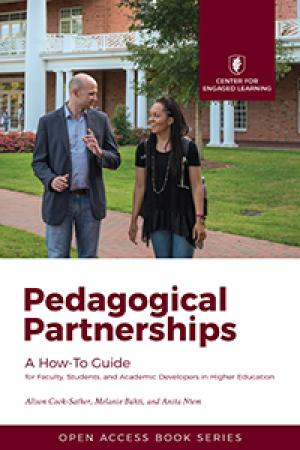
Pedagogical Partnerships and its accompanying resources provide step-by-step guidance to support the conceptualization, development, launch, and sustainability of pedagogical partnership programs in the classroom and curriculum. This definitive guide is written for faculty, students, and academic developers who are looking to use pedagogical partnerships to increase engaged learning, create more equitable and inclusive educational experiences, and reframe the traditionally hierarchical structure of teacher-student relationships. Filled with practical advice, Pedagogical Partnerships provides extensive materials so that readers don’t have to reinvent the wheel, but rather can adapt time-tested strategies and techniques to their own unique contexts and goals. (From the Publisher)
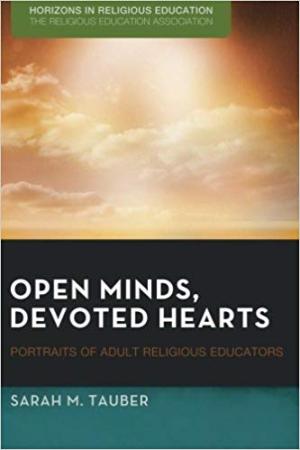
How do religious educators meaningfully engage adult learners? How do they invite adults to begin a learning journey and inspire them to stay on it? In an era of "spiritual but not religious," how can religious educators, and clergy in particular, respond to the yearnings of adults for connection, wholeness, and purpose? Open Minds, Devoted Hearts offers the examples of three outstanding congregational rabbis whose teaching answers that call to action. Through innovatively incorporating biographical portraits and educational scholarship the book provides a comprehensive exploration of how the themes of narrative, transformation, and spirituality bring adult religious educators and learners into a powerful interactive educational process. The portraits and accompanying analysis reveal how constructing personal meaning and building sacred community through study situates adult learning as a dynamic centerpiece of an energized congregational life. (From the Publisher)
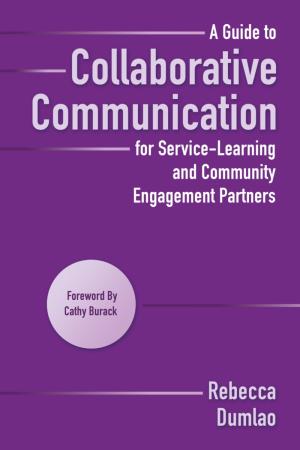
This book focuses on partnerships at the most basic level of interaction – between two people as they work toward common goals. Interpersonal dynamics described in this book are intended to guide formal and institutional relationships between members of a community or community organization on the one hand and representatives from campus on the other. Collaborative communication principles and practices shared can form a foundation for individuals to build flexible, lasting relationships that will weather most challenges and sustain the larger partnerships of their respective organizations. This book offers a conceptual framework of collaborative communication to build and sustain partnerships, recognizing that relationships change over time as the people involved and their circumstances evolve. Collaborative communication uses a repertoire of knowledge and skills that allow partners to make choices that fit their situation or context and to work through differences and challenges as they occur, to include managing conflict and navigating cultural differences. It further takes into account the different means of communication, whether face-to-face, using e-mail, text messaging, or social media. Readers will appreciate the numerous real world examples that illustrate and bring its key concepts to life. This book is addressed to partners at all levels focused on community engagement and service-learning. It is intended for preparing college students to work more effectively in the community, as well as for workshops for community and campus members who work with service-learning students. It can equally be used in leadership workshops in academic and community settings. Scholars, students, or community members involved in community engaged research will also find useable ideas for their work. The appendices offer an annotated bibliography of useful resources and provide readers with a repertoire of activities for building a collaborative communication repertoire. (From the Publisher)
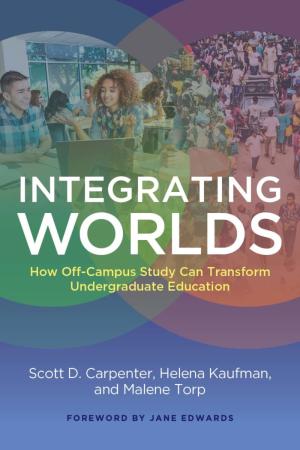
What if our students learn the most when they’re far from campus? Integrating Worlds demonstrates how high-quality off-campus study epitomizes integrative learning, both supporting and enhancing the entire undergraduate experience. While off-campus study (both study abroad or study away) occupies a marginal position on most campuses, it has the almost unique capacity to bring together a high concentration of high-impact educational practices. When we combine global learning with collaborative work, shared intellectual pursuits, learning communities, and more, these practices reinforce each other, exerting a multiplier effect that can potentially result in the most intense learning experience our students will have. It can energize and inspire them for the work they will continue to undertake on their home campus. It thus becomes crucial for us to identify or design high-quality programs that will achieve these goals. Moreover, we need to reimagine off-campus study as an integrated portion of the undergraduate arc—one that begins well before our students depart and continues long after they return. In this way, we help them understand the interconnectedness not only of the world, but also of their own education. At the same time, the authors recognize material constraints and educational imperatives. Off-campus study costs money; its complexity makes it difficult to assess; it overlaps increasingly with internships and civic engagement; and by its nature, it is more subject to external forces than the on-campus experience. In careful, practical ways Integrating Worlds advances suggestions for dealing with these issues. This book urges educators to go beyond the episodic ways we currently link on-campus curricula to off-campus experience. While of interest to specialists in international or intercultural education, it speaks most directly to faculty, deans and provosts—many of whom may have little (or dated) experience of study abroad and who thus feel unprepared to address this issue of pressing importance. As our disciplines and institutions face the complexities of a rapidly changing world, this book seeks to fuel the necessary conversations. (From the Publisher)
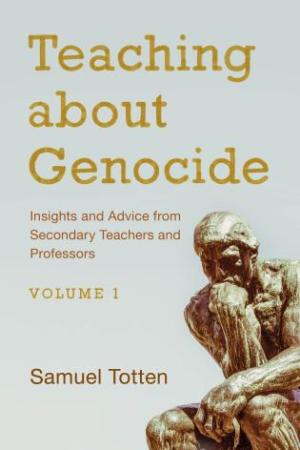
Secondary level teachers and professors from various disciplines present their best advice and insights into teaching about various facets of genocide and/or delineate actual lessons they have taught that have been particularly successful with their students. (From the Publisher)
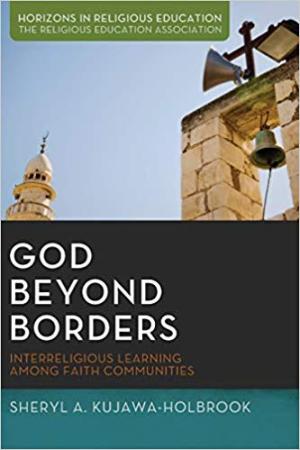
Based on ten years of research, God Beyond Borders is a comprehensive study of interreligious learning in faith communities. The United States is one of the most a diverse countries of the world. Kujawa-Holbrook details the many practices of interreligious learning in faith communities; through interreligious encounters, religious education, shared sacred space, shared prayer, and compassionate action. The book also surveys the field of interreligious learning and investigates some of the more common intentionally interreligious communities--families, clergy groups, chaplaincies, and community organizations. Kujawa-Holbrook combines theory and praxis to make a case for the importance of interreligious learning in all religious organizations. (From the Publisher)
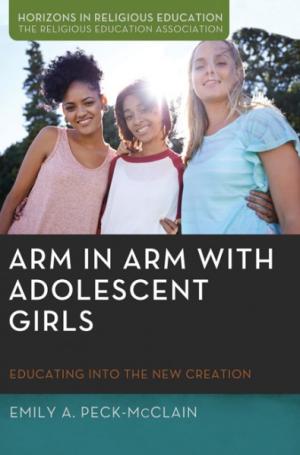
Adolescent girls are filled with passion, excitement, joy, critique, wit, and energy, even as they face and overcome a wide variety of difficult challenges. Some challenges are spirit- and even life-threatening. The stories of more than twenty adolescent girls are put into dialogue with the Apostle Paul, especially in Rom 6–8. Through that perhaps unlikely pairing, those who love and work with adolescent girls will find a depth of understanding and a call to action. Christian educators, pastors, youth workers, parents, and adolescent girls will find a new way to look at the world around them and a new way to bring Scripture to bear on real-life experience. By offering this powerful, scripturally-grounded approach to the world around us, adolescent girls and others will learn compelling methods for putting a new perspective into action in their personal lives, social circles, and churches. This thoughtful and respectful look at the lives of adolescent girls seeks to equip faithful Christians in the church to use their prophetic voices to call out the sins of racism, sexism, homophobia, and sizeism in the experiences of these strong and resilient girls. (From the Publisher.)